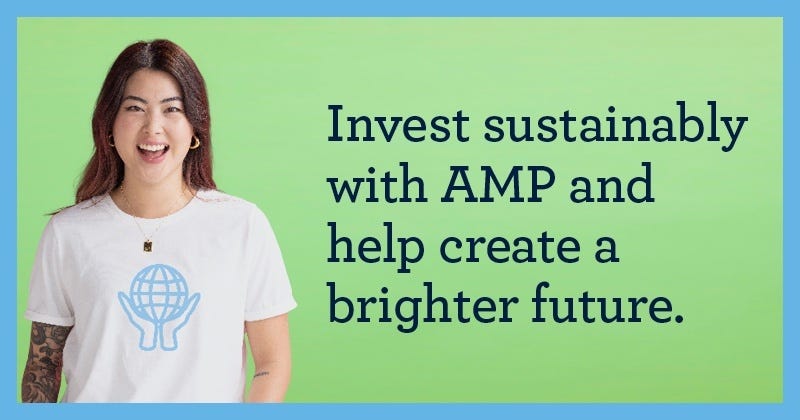Kia ora, welcome to Future Proof brought to you by AMP. I’m Ellen, thanks for joining me this week.
The tall pine tree, anchored in a bank next to the road, had begun to tilt sometime in the summer. This past weekend, as the tail of ex-tropical cyclone Lola lashed my windows, I wondered whether the tree might finally succumb. Would it fall and block my only road out? I wondered when (not if) the power would go out.
The power went out that evening at 7pm. The tree is still standing, but leaning ever more precariously to the asphalt.
“Rain anxiety” has emerged as a feature of many lives this year. What was once a soothing sound – rain on the roof – now induces worry and panic. I can’t imagine what people in Vanuatu must be feeling after their third cyclone of 2023.
Here in New Zealand, it doesn’t help that between the destructive downpours, the weather has remained persistently soggy with little sunshine. My little corner of the motu received a year’s worth of rain in the first six months of 2023.
Even if the shift to El Niño brings drier conditions to waterlogged places, the rain isn’t going away. Some parts of the country – the south and west, in particular – could see above average rain under El Niño. Plus, the emergence of Cyclone Lola, the earliest ever recorded cyclone in the Southern Hemisphere, is one symptom of how wack our weather is getting. So how can you deal with the feels the rain evokes?
A raft of articles on rain anxiety have appeared this year, offering advice. Taciano Milfont, a professor of environmental psychology, told Re:News that taking practical action, like making an emergency plan, can “bring some certainty” and a sense of control. He also recommends sharing your feelings with others.
For coping with persistent gloomy weather, clinical psychologist Dougal Sutherland suggests that people should “make the most of a damp situation”. Embrace the Danish concept of hygge: cosying up next to a fire with a hot cuppa and a good book, or a movie marathon. “It's about accepting that at times we won't be able to control the other, but we might be able to choose how to respond to it,” he told RNZ.
Clinical psychologist Jackie Feather recommended a three-step approach in this article by Shanti Mathias. Step one: sit with your emotions – notice them in a non-judging way. Step two: be present and mindful of your body and your surroundings. Step three: taking actions that renew your sense of agency and connection.
In my head, eco-anxiety is future-focused, a deep worry about the uncertainty of what’s to come in a changing climate. But anxiety about rain is a response to events happening to us now. In any case, maybe there’s a silver lining to all this worry: in a recent New York Times article, one psychologist envisages “psychological adaptation as a form of climate mitigation, not so different from sea walls”. Perhaps we can find a way to channel that nervous energy away from the rain, and into action and creativity.
AMP believes that investing in a sustainable future is the best way to achieve long-term investment success. That's why they integrate environmental, social, and governance (ESG) factors into all of their investment decisions.
AMP supports companies that are making a positive impact on the world while avoiding those that are causing harm. AMP is also working to reduce its own carbon footprint and achieve a net zero outcome by 2050 or sooner.
New assessment of carbon budgets shrinks 1.5° window
For a 50/50 shot at limiting warming to 1.5°, the world can only emit another 250 gigatonnes of carbon, a new study estimates. Researchers revisited carbon estimates in the most recent IPCC report, published in 2021. The updated remaining carbon budget is now 250 gigatonnes, half of the 2021 estimate. At current rates, this new budget of 250 gigatonnes could be exhausted within six years.
Fact-checking EV myths
Detractors often claim that the emissions associated with an EV battery mean that electric vehicles have little to no climate benefit over conventional cars. But that’s false, according to a Carbon Brief fact check: “EVs significantly cut lifecycle greenhouse gas emissions in almost all circumstances.” The comprehensive article debunks a further 20 “persistent” EV myths.
In other EV news, Toyota is reportedly close to a manufacturing breakthrough in game-changing solid-state batteries. This type of battery could double EV range and charge rapidly with better safety, representing a shift “as momentous as that from corded telephones and landlines to mobile phones” according to some observers. But others question if it will ever be commercially viable, or whether it’s just a “hyped up research project”. The Financial Times explores whether there’s substance behind the hype in a long-read.
What’s happening with the Predator Free 2050 moonshot goal?
In a five-part investigative series, Eugene Bingham of The Post dives deep into Predator Free 2050, which has become the cornerstone of conservation in New Zealand. But has our obsession with rats, possums and stoats detracted from other, equally important conservation threats? Is the movement heading in the right direction? And how are the behind-the-scenes politics affecting delivery of the goal, especially with a private company now firmly in the mix?
More stories:
How do you feel about the incoming government’s approach to climate change? Stuff wants to know.
A second kākāpō, Manaaki, has breached the fence at Sanctuary Mountain Maungatautari. He was retrieved from a dense patch of blackberry bushes on neighbouring farmland.
The world solved acid rain, so we can solve climate change, argues Hannah Ritchie from Our World in Data.
National wants to “rebalance” the way freshwater is managed, a move that has environmental groups worried, David Williams reports for Newsroom.
Container ships are betting on greener technologies, but it’s not a safe bet.
Twenty years of predator control quadrupled kākā density near Taupō.
An inquiry into climate adaptation and managed retreat, initiated in the last days of the outgoing government, could still have life under the next, Newsroom’s Jonathan Milne reports.
Scientists are using artificial intelligence to help save endangered species by analysing vast amounts of data, monitoring ecosystems and spotting trends over time.
To finish this issue, anyone else excited for Planet Earth III? My Roman Empire is thinking about that nail-biting scene of iguana babies being chased by snakes in Planet Earth II. So, needless to say, I’m looking forward to another season of wildlife spectacle narrated by the iconic voice of Sir David Attenborough. The third instalment of the blue-chip nature doco has started airing in the UK.
Iguana wish you a great week,
Ellen
Got some feedback about Future Proof or topics you’d like covered? Get in touch with me at futureproof@thespinoff.co.nz














Just to say l really enjoy your newsletter.
It's manageable in length and is great for information on what is happening. Keep up with the good work. Best wishes. Helena Hutchinson